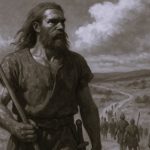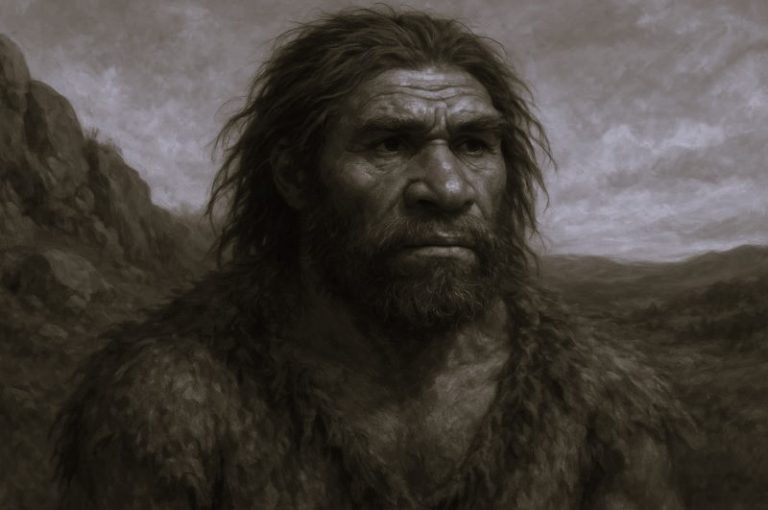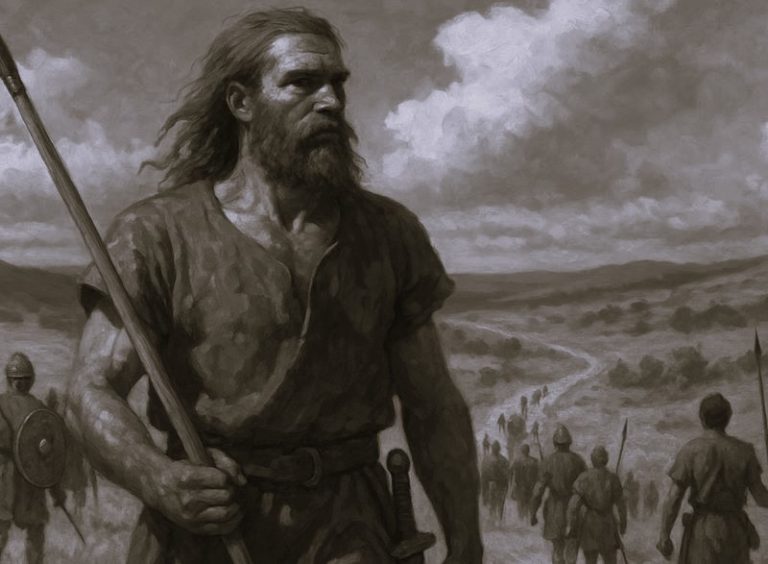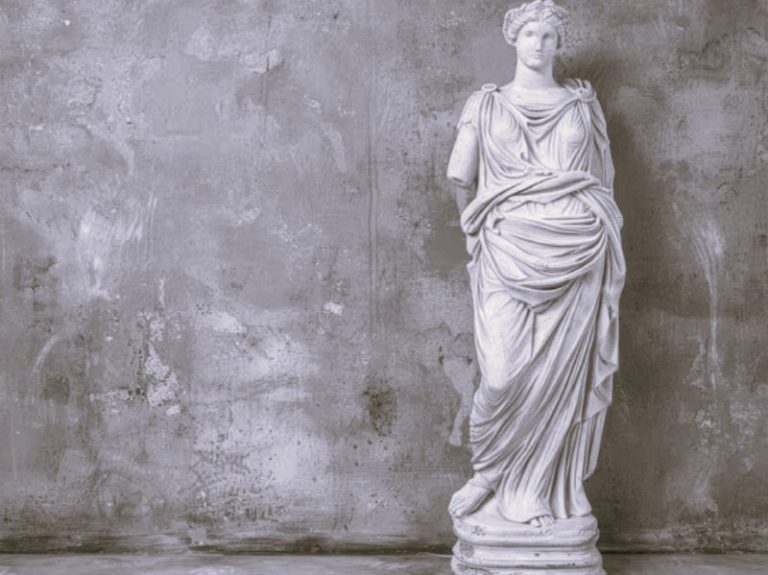

Clark and Griggs introduced Black political priorities and cultural practices to white-led movements.

By Marc Blanc
PhD Candidate in American Literature
Lynne Cooper Harvey Fellow in American Culture Studies
Washington University in St. Louis
From its start on June 5, 2023, Cornel West’s chaotic or, in his words, “improvised” presidential campaign has been the subject of debate, ire, and scorn from commentators of various ideological shades. But the editorializing around his campaign rarely acknowledges the long tradition of Black third-party activism that West is continuing. In 1876, the orator and educator Peter H. Clark broke with the Republicans to join the nascent Workingmen’s Party, one of the earliest Marxist parties in U.S. history. Clark’s challenge to the Party of Lincoln paved the way for the novelist and pastor Sutton E. Griggs to critique U.S. imperialism and advocate for Black Populism at the turn of the 20th century. Clark and Griggs exercise direct ideological, rhetorical, and spiritual influence on West and other 21st-century Black radicals. In the introduction to the 2003 edition of Griggs’ 1899 novel, Imperium in Imperio, West calls Griggs “one of the most significant black public intellectuals at the turn of the twentieth century.”
Clark and Griggs tried to unite radicals across race based on mutual investments in social and economic justice, pacifism, and progressive spirituality. Through oratory and fiction writing, Clark and Griggs introduced Black political priorities and cultural practices to white-led movements. Both men weathered backlash for opposing the two-party system, and they consequently remain less known than contemporaries such as Frederick Douglass and Booker T. Washington, who maintained support, though at times reluctantly, for the GOP. While neither Clark, Griggs, nor the independent candidates they supported won office, the two reformers laid the groundwork for multiracial coalitions on the U.S. left in an era when white revolutionaries often harbored racist convictions.

While the history of Black radicalism in the U.S. predates Peter H. Clark, he was the first known Black American to join a socialist political party. His involvement with the Workingmen’s Party was as motivated by his disillusion with the Republicans as it was by his belief in the abolition of private property. In 1873, Clark spearheaded the Chillicothe Convention, an Ohio-based movement of Black dissent against the Republican Party. Participants in the convention tried to leverage their collective voting power to force elected Republicans into passing more aggressive civil rights legislation. Clark charged in the convention proceedings, excerpts of which can be found in Nikki M. Taylor’s biography of Clark, that the Ohio GOP might as well have had no Black membership or constituency at all, “so rigidly are we excluded from anything, which might look like an equality of right in office holding.” Republicans paid lip service to racial equality, but the convention-goers saw their practical failure to elevate Black politicians to office or pass civil rights bills as a sign that the party’s priorities were not so dissimilar from those of segregationist Democrats. Clark’s critique of the Republicans would be validated in 1876 when the party struck an infamous compromise with Democrats to formally abandon Reconstruction in exchange for the right to declare victory in the 1876 presidential election.
The GOP’s withdrawal of federal troops from the former Confederacy accelerated the reversal of Black political gains during Reconstruction and the consolidation of the sharecropping system. Instead of owning the land that had formerly belonged to their enslavers, Black farmers were forced to pay credit to white property owners to live on the land that their families had worked for generations. Sharecroppers were trapped in a cycle of indebted labor that was little different from chattel slavery. Many Black citizens blamed the party of the North for this virtual re-enslavement. The moment seemed perfect for a radical third party to challenge the Republicans by appealing to their disenfranchised Black constituency.
Clark joined the Workingmen’s Party the same year that the Republicans conceded Reconstruction. His faith that the socialist organization could help Black Americans was not always reciprocated by white party members. The attitudes of these early socialists typically ranged from the color blindness of Eugene V. Debs, whose statement that his Socialist Party had “nothing special to offer the Negro” has been taken as representative of early socialism’s class reductionism, to the explicit racism of a politician such as Victor Berger, who claimed that socialism would only benefit “European or Caucasian” societies. Against this backdrop, Clark implored his white Northern comrades to pay attention to the political and economic struggles of Black sharecroppers. In March 1877, he proclaimed to an overflow crowd in Cincinnati that Southern “capitalists … carefully calculate how much, and no more, it will require to feed and clothe the black laborer and keep him alive from one year to another … Not a foot of land will they sell to the oppressed race who are trying to crowd out the degradation into which capital has plunged them.” At a time when many white socialists considered Black emancipation to be a finished battle of the past, irrelevant or even inimical to the radical labor movement, Clark argued that not only did many of the injustices of slavery still exist across the agricultural South, but that these injustices were the product of the same economic system that white industrial laborers were fighting.
In addition to foregrounding Southern Black labor, Clark advocated against some of the more violent strands of contemporary socialism and anarchism. During the late 19th and early 20th centuries, socialists were divided between revolutionaries, who favored armed struggle against the ruling class, and “slowcialists,” who believed that capitalism could be voted out of existence at the ballot box. Clark ran with the latter camp. At the end of July 1877, waves of violent clashes between workers and employers erupted across the country. Beginning as a railway labor strike in Baltimore, the uprisings spread to cities further west and intensified into a general strike encompassing all industries. Government militia and private police forces, the same agents of state violence charged with putting down Indigenous rebellions on the plains and Black uprisings in Southern and Midwestern cities, descended on workers, rifles cocked. In a speech that became known as “Socialism: The Remedy for the Evils of Society,” Clark counseled the thousands of workers who had assembled to hear him speak:
We are exercising today the right to assemble and complain of our grievances. The courts of the land are open to us, and we hold in our hands the all compelling ballot. There is no need for violent counsels or violent deeds. If we are patient and wise, the future is ours.
While strikes in Pittsburgh and St. Louis turned violent — abruptly halting the strike wave — Clark kept the Cincinnati demonstration peaceful. Local journalists who covered the July 1877 speech reported that his “calm face had a soothing effect on the excited multitude.” Even local newspapers with an anti-socialist bent described Clark as an “intelligent gentleman and speaker,” underlining his high reputation within many communities, from Black Cincinnatians to radical German Americans and even some conservative whites.
After the 1877 strike, Clark deepened his involvement with the Workingmen’s Party (which rebranded as the Socialistic Labor Party), sitting as secretary of the party’s national executive committee. The party recorded some success in organizing Black workers after the 1877 strike, establishing a chapter for Black members in St. Louis. Impressed with Clark’s speeches during the strike, the party nominated him as a candidate in two different election cycles, first for commissioner of Cincinnati public schools and then for the U.S. Congress in 1878. Although Clark did not win either contest, his impressive showing in the race for commissioner, in which he won 8% of the vote, points to the cross-racial appeal of his intersectional socialist politics in postbellum Cincinnati.
However, Clark grew frustrated in 1879 after William Haller, his close friend and editor of the Cincinnati Emancipator newspaper, was excommunicated from the party for ideological reasons. It also became apparent to Clark that the party would not be able to secure him a political office that would allow him to contribute to the uplift of Black Americans, which he described as his “controlling political motive.” His stint with the Workingmen’s Party would ultimately be one of the final peaks in an illustrious political career that had spanned more than 20 years. In the 1880s, he turned to the Democratic Party, which he hoped would reward him with an office, and in doing lost the trust of both Black and white comrades. The Democrats ultimately proved disappointing to Clark’s political ambitions, just as the socialists and Republicans had done before. Clark then moved to St. Louis, where he spent the latter decades of his life teaching at Sumner High, the city’s first Black high school.
Black voters would not begin to leave the Republican Party en masse until several decades after Clark delivered his speeches. However, a decade after Clark stepped off the podium, larger parties such as the People’s Party began to mobilize and increase Black dissent against the two-party system.
If one word could summarize the prolific career of author, publisher, and pastor Sutton E. Griggs, it would be independence. In both his political activism and his literary works, he refused to submit to the demands of any force other than his own judgment. He wrote five novels and dozens of pamphlets and nonfiction books, all of which he either self-published under his own imprints or financed through commission or “vanity” presses. Several of Griggs’ contemporaries, such as Mary Church Terrell, were forced to self-publish because mainstream white publishers did not believe that Black-authored fiction would sell. Griggs was unique in his proactive embrace of self-publishing as a strategy to circumvent the racism of mainstream publishing. Printing and selling his own books allowed him to reach an audience that commercial publishers neglected: poor Black Southerners. In The Story of My Struggles, a 1911 solicitation pamphlet asking readers to donate to his self-publishing venture, Griggs writes that he
went from door to door, visited, at dinner hours, places where plain workmen toiled. I went to schools where Negro boys and girls were struggling for an education. These humble people of the race came to me with their dimes, and I was able to at least hold my head above the threatening financial flood.
Griggs wanted his books, all of which promote racial equality either through fiction or polemic, to reach ordinary readers who possessed varying levels of literacy. According to Griggs’ biographer John Cullen Gruesser, writing never provided Griggs with financial stability; rather, it was a political act and social service. However, Griggs never reached his goal of cultivating a mass audience of poor Black readers. By his own admission, most of his books were “financial failure[s].” His inability to sell out a single print run frustrated him to such an extent that by 1911 he laid the blame “at the door of my race,” concluding that neither literacy nor interest in literature was prevalent enough among his ideal audience to allow him to break even on his writing. While literacy rates were indeed lower among Black Southerners than among whites or Black Northerners, Griggs’ choice to self-publish his texts limited his ability to circulate books in marginalized communities.
At the same time, self-publishing empowered Griggs to print radical critiques of racism and imperialism without the burden of editorial oversight. Independence was Griggs’ aim not just for his own writing and for Black Americans more generally, but also for people oppressed by U.S. empire abroad. Griggs’ fiction articulates the continuity between Black progressive politics and anti-imperialism at the turn of the century. In 1898, as Griggs was finishing his first book, the utopian novel Imperium in Imperio, the Spanish-American War broke out over control of Cuba, then a Spanish colony that had weathered years of anti-colonial insurrections. While Imperium in Imperio is often described as a Black nationalist novel, it celebrates solidarity with subjugated Cubans just as prominently. At the same time that essays like Booker T. Washington’s “New Negro for a New Century” were supporting U.S. encroachment into Cuba and the Philippines as a means for their political independence, Griggs’ novel is skeptical that U.S. rule would lead to liberation for indigenous Cubans or Filipinos. Referring to what was then an ongoing news story, the novel’s narrator explains how the “Imperium” — the name given to the novel’s clandestine African American nation-state — became radicalized:
an insurrection broke out in Cuba … the whole Imperium watched this struggle with keenest interest, as the Cubans were in large measure negroes. In proportion as the Cubans drew near their freedom, the fever of hope correspondingly rose in the veins of the Imperium.
The novel argues that revolts in the colonial periphery also threatened white supremacy on the U.S. mainland. The Cuban insurrection against Spain inspires the novel’s utopian Black republic to turn revolutionary and seize Texas and Louisiana, where a sovereign Black nation can be officially established.
Imperium in Imperio questions sensational newspaper headlines that attempted to drum up support for the war by claiming, without evidence, that Spain sank the USS Maine. Griggs instead describes the event with loaded ambiguity, suggesting that it was not Spain but rather “some powerful engine of destruction” that attacked the American naval ship. His opposition to U.S. expansionism would have been difficult to maintain had he not decided to self-publish. Many Black newspapers, struggling to stay afloat, depended on political and financial partnerships with the Republican Party, which oversaw the war.
Griggs carried his opposition to U.S. imperialism from his fiction to the campaign trail in 1900, when he rallied support for the Populist-aligned Democrat William Jennings Bryan. Acting as a political organizer, Griggs urged Black voters to abandon William McKinley’s Republican administration, which was expanding U.S. power over Cuba and the Philippines. Bryan opposed the wars, and made anti-expansionism a cornerstone of his campaign. Griggs’ arguments for supporting Bryan reveal that his anti-colonialism was a form of radical Black nationalism. He reasoned that “the natives of the Philippines are practically in the same condition now — that of slavery — as the negro in the south before the war.” But popular opposition to imperial expansion was not popular enough to prevent Bryan from losing to McKinley by almost the same margin as he had lost in 1896. Neither did Griggs’ rhetoric translate into many Black votes for Bryan. Even if Bryan personally opposed both colonial expansion and racial eugenics, the Democratic Party remained aligned with the former Confederacy in most voters’ minds. However, Democratic Party racism did not deter Griggs from critiquing Republicans in his fiction. His third novel, 1902’s Unfettered, features his most explicit commentary on how the two-party system held Black voters hostage:
They believed that God had specifically created the Republican party to bring about their emancipation. On the other hand, they regarded the Democratic party as the earthly abode of evil, created explicitly and solely for the purpose of harassing them. Thus, whoever opposed the Republican party was sinning against God; and whoever voted against the party was in league with the devil … Such were the views held by the less enlightened, Dorlan felt.
Griggs’ attitude toward “less enlightened” Black voters could come off as arrogant. In Unfettered, it is up to the heroic Dorlan Warthell, an intellectual like Griggs, to educate the masses out of their blind devotion to the GOP. Dorlan ultimately founds a third party for anti-expansionist Black voters eager to leave the Republican Party because of its support for the subjugation of native populations in territories acquired after the war with Spain. The dubious ethics of aiding the Party of Dixie notwithstanding, Dorlan makes an admirable anti-imperialist case for opposing Republicans:
Negroes can only favor one solution to the problem, the recognition of the fact that all men are created equal. They should favor no postponements of the decision, having themselves suffered from a postponement that lasted from midnight of July 4th, 1776 to until January 1st, 1863.
Like Clark, Griggs was a trained orator, working as a pastor at Baptist churches in Tennessee and his native Texas. His speaking prowess is on display in a handful of sermons that he recorded in 1928, making him a pioneer of the rich tradition of Black preacher recording artists. Black heroism and interracial collaboration triumphing over prejudice are recurring themes in his sermons. Religious calling propelled his commitment to education and literature, as well. He served as the first president of Nashville’s American Baptist Theological Seminary (now American Baptist College) in 1925 and accepted a commission from the National Baptist Convention to write a refutation of Thomas Dixon Jr.’s popular racist novels. Griggs’ fourth novel, 1905’s The Hindered Hand; or, The Reign of the Repressionist, was the result of the commission.
Twenty years after Clark joined the Democratic Party, Griggs similarly alienated many of his contemporaries by leaving the Republicans and collaborating with political organizations that condoned anti-Black racism, including the Democrats and the Southern Baptist Convention. His willingness to work with “Democrats and ex-Confederate soldiers” made him a consistent target of criticism in the Chicago Defender, one of the largest Black weeklies of the era. Much of this criticism is fair. At the same time, however, Griggs can be seen as a presage to the great exodus of Black voters from the Republican Party in the 1950s. Like Clark before him, he was disappointed by the Republicans’ failure to serve their Black constituents, and recognized that the two major parties were unlikely to ever prioritize Black political interests. To borrow a historically significant phrase that Griggs helped to pioneer, the “New Negro” needed a new party.
Griggs and Clark both sensed that the Republican coalition that had won the Civil War had a few decades later become tenuous, and was breaking beneath the weight of ideological tensions. Today, dissent over a Democratic president’s support for Israel’s war on Gaza threatens to strain the already damaged relationship between liberals and leftists in the Democratic party. Cornel West, another independent Black activist, has made his opposition to what he considers a colonialist war central to his critique of Joe Biden, echoing the comments that his forebear Griggs made about the Spanish-American War. Agonized voters in 2024 may find themselves thinking similarly to Griggs in 1900: “A party can start out good and change … The ballot box is no place to make a vote of thanks for past favors.”
Originally published by History News Network, 04.23.2024, republished with permission for educational, non-commercial purposes.






